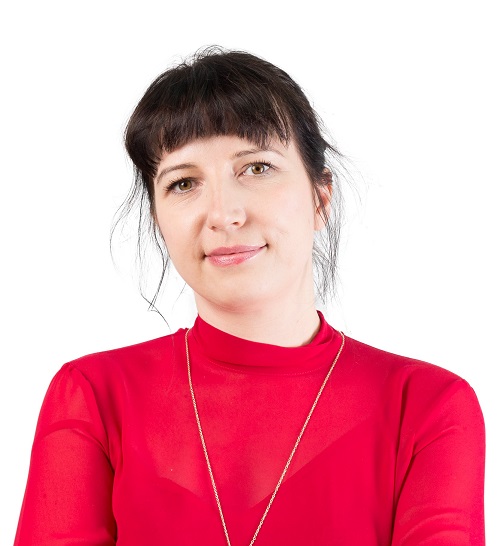Mentoring with a clear goal – to become an IT leader
When in January 2021 we started our mentorship as a part of the “Lead IT, Lady” Programme, Ewa Ludwiczak (a mentee) was a Senior Software Test Engineer at Allegro. Her leading career goal of was clear: to become a software development team leader. During the programme, she was paired with Katarzyna Osuch-Bukowska (a mentor), who works as an Engineering Manager at Grand Parade.
After completing our six-month mentoring cooperation, Ewa now leads a team of five mobile software developers. This article presents what we both learned from this experience and what made our collaboration a success.
The perspective of a mentee, Ewa Ludwiczak
How did I meet Katarzyna?
After returning to work from my maternity leave, I felt a need to get back on track with my professional development. I came across an application form for “Lead IT, Lady!”, a Women in Technology Poland society programme. The project supports women in taking leadership roles in IT. “Lead IT, Lady!” consists of 9 months stuffed with a mix of theory and practice: leadership workshops, running voluntary projects for the IT community and mentoring support. I applied for the programme and got accepted! Thanks to “Lead IT, Lady!” I was lucky to meet Katarzyna, who guided me in my early days of leadership.
How did we start?
On the one hand, I was full of ideas and very enthusiastic (Enthusiastic Beginner, Blanchard would say). On the other hand, I was not sure if any of these ideas for kicking off a new team were even reasonable. Support from my direct supervisor and mentoring with Katarzyna helped me choose my own way of becoming a leader.
Katarzyna and I did not set a predetermined plan for the mentoring. I felt free to come to her with the challenges I was facing. Katarzyna listened carefully, asked questions, and confronted my point of view. In fact, I had no idea yet what leadership challenges were (and still are) waiting for me. Such an open form of mentoring was a good idea.
How did I profit from mentoring?
Regular conversations with an IT manager, female leader and programmer were highly informative. I profited from Katarzyna’s experience and practical knowledge very directly. We were able to juxtapose and contrast various situations in our professional lives. Having little leadership experience in my company, I was very much interested in how other leaders work with their teams.
Referring to Katarzyna’s personal experience and company culture helped me cope with my own thoughts. Sometimes the conclusion was that I could have done so much better. Sometimes the problems I struggled with appeared to be common, and there was no simple answer to them (as you can imagine, the second option was particularly encouraging for me). Knowing that I am not the only one wondering about the most effective approach to people management, performance evaluation, project coordination, or situational leadership was already helpful. But more importantly, talking about how other leaders approached these challenges inspired me and helped me find solutions.
During the mentoring sessions, Katarzyna tactfully confronted my point of view. By asking questions and sharing her experience, she showed me these situations from a different angle. It may not have been comfortable, but the issues I discussed with my mentor could be moved forward in the end. Being outside your comfort zone is a normal and expected part of learning. I often remind myself that it’s OK to be confused.
I appreciated the honesty and empathy that Katarzyna always brought to the table. The combination of the two is crucial, especially for successful mentoring. Feeling like your mentor is on your side is necessary to remain open and honest about your career challenges.
Why is mentoring a clever idea?
After each session, I would select a few things that stuck in my memory particularly well and write them down. It started my “Leader’s notes”, which I continue. I like to joke that if I ever had to write a book, this would be a good start. But more seriously, taking notes is not only a good exercise for the brain, but it also creates a record of how I grow in leadership.
I firmly believe that becoming a leader is not about changing your job position. It is a process that goes on before and after promotion. Having a mentor helps to make this path less bumpy.

Perspective of a mentor, Katarzyna Osuch-Bukowska
Why did you agree to become a mentor?
In 2020, Grand Parade became a strategic partner of the “Lead IT, Lady!” programme. As soon as I found out about it, I agreed to join it as a mentor. When I started my professional career in the IT industry in 2004, I remember how important it was for me to find a role model to look up to for inspiration and guidance. Now, 17 years later, I have been able to support others by sharing my experience and what I have learned over the years, and I was extremely excited about becoming a mentor.
What strategy did you follow during the mentoring sessions?
We met online every two weeks for six months because I live in Krakow and Ewa lives in Poznań. We did not stick to a strict agenda; we did not plan every detail in advance. Instead, we defined Ewa’s leading career goal and went with the flow because that approach worked best for us.
The topics that Ewa raised at our mentoring meetings included talking to a boss about our professional aspirations or tactfully promoting ourselves in the work environment to be perceived as promising candidates for managerial positions. When she was promoted, we began to cover many topics related to her new responsibilities as a team leader, for example, how to work with people of different personality types and levels of experience, how to effectively collaborate with various stakeholders and how to constructively talk about problems with the team.
One of the topics I initiated was a behavioural interview. I wanted Ewa to realise that an interview for a management position in IT is slightly different from a programmer position. It is a mix of behavioural and technical discussions. And both parts are equally important. It is challenging for developers and QAs, as they are usually used to purely technical conversations.
Could mentoring also be beneficial for a mentor?
I firmly believe that mentoring can also positively affect the mentor. Helping others brings a lot of inner satisfaction. For me, it was a rewarding experience to accompany Ewa in her professional development, support her in achieving her professional career goal and, finally, in taking the first steps as a leader.
I am an Engineering Manager, and I work directly with software development team leaders on a daily basis. My role is to find new people with potential in the leadership area and prepare them for this challenge. It is very often the first leadership role in someone’s career, and they need a lot of support at the beginning. Thanks to this experience, I can help develop their skills even more effectively.
What made your mentoring successful?
Understanding, trust and chemistry between a mentor and a mentee are vital. I would emphasise that the Women in Technology matched me so well with my mentee. In the beginning, all mentors and mentees had to fill in questionnaires, and we were paired based on our answers.
I wanted to work with someone who already worked in IT and had a technical background but was interested in a management position. It is much easier for me to identify with this type of career path and, as a result, to help more effectively. Ewa fit that description perfectly. Moreover, she has tremendous energy, technical knowledge, and goal orientation, which immediately captivated me.
Before we started our mentoring, Ewa and I agreed that if our collaboration was not working well, we would talk openly about it, and if we did not agree, we would end our mentorship. Fortunately, we did not have to take such steps.
Summary
We strongly believe that mentoring is worth considering when one wants to enter a completely new role in one’s organisation or has been promoted to a new position. Having an experienced professional with whom you feel comfortable to ask any question is a huge support and increases your chances of future success.
We encourage you to look for mentoring programmes available in your field of specialisation or ask a senior colleague who is an authority for you whether they will agree to become your mentor. Just do it!
If you would like to share your thoughts or ask a question, please reach out via LinkedIn.
Ewa Ludwiczak, Team Leader at Allegro
Katarzyna Osuch-Bukowska, Engineering Manager & Principal Engineering Lead at Grand Parade


